

 |
||||||||||||||||||
| Saturday 10 November10.30 am – 4.30pm Devonport Lecture Theatre, Portland Square Building, Plymouth University,Plymouth PL48AA …………………………………………………………………………………………………………………………………………………DATA ECOLOGIES: A symposium that invites creatives, academics, scientists, technologists and all interested parties to share ‘instruments’ or provocative prototypes and practises that, through the use of data, enhance our understanding of the world and our impact on it, defining a range of trans-disciplinary strategies and projects to manifest complex ecologies – to make the invisible visible.The Lab sets out to be a catalyst for creative experimentation and invites leading artists, scientists and technologists to share ‘instruments’ or provocative prototypes and practises that, through the use of data, enhance our understanding of the world and our impact on it.DATA ECOLOGIES will explore a variety of approaches for harvesting environmental data and a range of design strategies and media forms that can be used to visualise and sonify it. The symposium consists of invited speakers and case studies followed by ‘hands-on’ Hardware + Software and Data Visualisation Labs which demonstrate viable solutions for creative and enviromental practice …………………………………………………………………………………………………………………………………………………. REGISTRATION: Conference fee of £25 (concessionary rate £15) covers tea/coffee and lunch. Bursaries are available for students, teachers and artists, to enquire please email: baga@plymouth.ac.uk TO BOOK, please click HERE DOWNLOAD THE DATA ECOLOGIES PDF FLYER .………………………………………………………………………………………………………………………………………………… Presenters and demonstrators: Alice Sharp, Curator and Director, Invisible Dust Andrew Bell, North Devon Biosphere. Antony Lyons, Artist/ Ecological Designer/ Environmental Geo-ScientistLuis Girao, Artshare, Portugal David McConville, (telematic FullDome Presentation) Elumenati Mike Phillips, i-DAT Mark Wallace, Beaford Arts Pierre Vella, Creative Technologist, Invisible Dust Simon Blackmore, Artist, Owl Project Simon Lock, i-DAT Will Stahl-Timmins, Associate Research Fellow, European Centre for Environment and Human Health, University of Exeter Medical School………………………………………………………………………………………………………………………………………………… Timetable: (the schedule of presenters will be regularly updated). |
||||||||||||||||||
|
||||||||||||||||||
| …………………………………………………………………………………………………………………………………………………Location: View Larger Map………………………………………………………………………………………………………………………………………………… Data Ecologies is part of the Confluence Project a cross disciplinary initiative made possible by the unique partnership of i-DAT, The North Devon Biosphere Foundation, Beaford Arts and Appledore Arts.PROJECT INFORMATION Data Ecologies is part of a series of activities developed around the Confluence Project. Confluence is a flagship project designed to act as an exemplar of high quality artistic and scientific practice, supporting and informing visual arts practice within a rural and environmental context. Offering an innovative way to explore the participants’ impact on their local environment, the project holds the potential to change behaviour of the groups and communities who take part. Confluence is a cross disciplinary initiative bringing the arts, environment, technology and science together in an innovative and collaborative project. At the heart of the project is the aspiration to create new work that responds to the connections that exist between the environment of the Biosphere Reserve and the people that work, play and live in there; exploring its history and the issues it faces now and will face in the future. Confluence combined art, science and technology to take a look ‘behind the scenes’ of the Biosphere. Live online environmental data was collected from locations along the River Torridge, using remote sensors called Ecoids. The four project artists have used the data streaming from these to create new hybrid artworks, as well as working with eight schools and communities along the river to visualise aspects of their local environments. Biosphere Foundation, Beaford Arts and Appledore Arts. North Devon has always been one of the finest unspoilt locations in the UK and is now home to Britain’s first new style world class UNESCO Biosphere Reserve, where conservation and sustainable development go hand in hand. |
||||||||||||||||||
 |

Although the site for the one-day symposium and workshop was the IBM Smarter Planet Lab, the Immersive Vision Theatre the Devonport Lecture Theatre at Plymouth University, the real location of the workshop was the 55 square mile terrain of the North Devon Biosphere Reserve. For the preceding year a collaboration, led by Beaford Arts, Appledore Arts and the North Devon Biosphere, in partnership with i-DAT, four commissioned artists and eight schools, had harvested, sonified and visualized data from across the landscape surrounding the confluence of the rivers Taw and Torridge. The Data Ecologies Symposium and Workshop framed the activities, methods and strategies developed through the ‘Confluence Project’ and brought together a rich transdisciplinary mix of presenters in the overlapping fields of creative and environmental practice. The aim was to share ‘instruments’ or provocative prototypes and practises that, through the use of data, enhance our understanding of the world and our impact on it, defining a range of transdisciplinary strategies and projects to manifest complex ecologies – to make the invisible visible.
The Symposium consisted of a morning of presentations from the ‘Confluence Project’ participants and leading artists, designers and arts organizations in the field. Simon Blakemore from the ‘Owl Project’, Alice Sharp and Pierre Vella from ‘Invisible Dust’ and Will Stahl-Timmins from the University of Exeter Medical School provided vivid accounts of projects with synergetic aims, motivations and strategies for engaging with complex ecologies. Alternative methods for disseminating knowledge about the world we live in, engaging communities and developing information literacy, processes that challenge and extend the traditional top down science rhetoric, beyond the public understanding of science, by providing a cultural framework, a lived language and new levels of creative participation to articulate the invisible.
The afternoon session delivered two Labs:
Lab 1:
Facilitated by Luis Girao in IBM Smarter Planet Lab. Hardware and software: Lab1 introduced the use of open source hardware and software to build environmental monitoring and remote, networked sensing devices (xbee, arduino, sensors, mobile phones, tablets and computers), the use of software for data capture and broadcasting through the Internet (processing, HTML, RSS, databases) and the integration of data harvested from the environment into platforms such as Google maps and other API’s.

Lab 2:
Facilitated by David MCconville. Data Visualizations/visualizing complex data, in the Immersive Vision Theatre: The Lab provided a range of solutions for visualizing data for Full Dome environments, using Game Engines (Blender, Unity 3D), Sonification, Video capture and image manipulation.

The ‘Confluence Project’ developed a core networked sensor system based on the Xbee, around which various sensors (flow, light, temperature, movement) were integrated. These ‘Ecoids’ were model ‘provocative prototypes’, networked instruments for harvesting data in order to enhance our understanding of the world. They do this not through an algorithmic definition of what certain values (temperature, luminosity, humidity, flow and turbidity) actually mean, but through a negotiation of what the environment really feels like.
Eco-OS (www. Eco-OS.org) provided a substrate for the ‘Confluence Project’, through the use of open source hardware and software to build environmental monitoring and remote, networked sensing devices – ‘Ecoids’ (xbee, arduino, sensors), mobile phones, tablets and computers. It deploys software for data capture and broadcasting through the Internet (processing, HTML, RSS, databases) and the integration of data harvested from the environment into platforms such as Google maps and other API’s.
Once captured, analysed and parsed this raw material can be visualized and sonified through traditional audio/video and image manipulation, screens, web pages but, more interestingly, through FullDome environments. These new forms reveal the ‘temporal’ ebb and flow of environmental factors and manifest the ‘invisible’ fabric that allows us to ‘feel’ things that normally lie outside of our normal frame of reference. Installing remote sensors in the landscape may be common practice within the Earth Sciences. However, these industrial instruments are normally significantly expensive industrial weather stations that collect data from a focused area. The data collected may well be calibrated to professional scientific standards, but at the same time it brings with it an ‘institutionalized’ model of the environment, a non-negotiable model that can be difficult for the inhabitants of an environment to understand and ‘own’. The ‘Confluence Project’ offered a different model, something that was totally negotiable, participatory and thoroughly owned by those that contributed. The creative outputs made the environment understandable, highly relevant and empowering.
Through the manifestation of material, immaterial and imaginary worlds Confluence brought the ‘Landscape’, which is by definition, unreachable and out there, just a little closer…
Organizers
B. Aga, i-DAT
Andy Bell, North Devon Biosphere Reserve
Fiona Fraser-Smith, North Devon Biosphere
Lisa Harty, Beaford Arts Centre
Dawn Melville, i-DAT
Mike Phillips, i-DAT
Mark Wallace, Beaford Arts
Artists
Antony Lyons, www.antonylyons.net
Jon Pigott, www.sonicmarbles.co.uk
Simon Ryder, www.artnucleus.org
Simon Warner, www.simonwarner.co.uk
Data ecologies presenters
Simon Blakemore, ‘Owl Project’
Luis Miguel Girão, Artshare
David McConville, The Elumenati
Alice Sharp, ‘Invisible Dust’
Will Stahl-Timmins, Visual Presentation of Data and Information European Centre for Environment and Human Health, University of Exeter Medical School
Pierre Vella, Invisible Dust
Schools
Appledore Primary
Bideford College
Clinton Primary
Dolton Primary
East the Water Primary
Great Torrington Junior
Great Torrington School
Instow Primary
i-DAT development team
Luke Christison, Gianni Corino, Stavros Didakis, Ziad Ewais, Saul Hardman, Chris Hunt, Oliver Jones, Simon Lock, Lee Nutbean, Chris Saunders, Aurora Zhang.
Acknowledgement
The ‘Confluence Project’ received funding from Arts Council England and Leader 4 Torridge and North Devon.
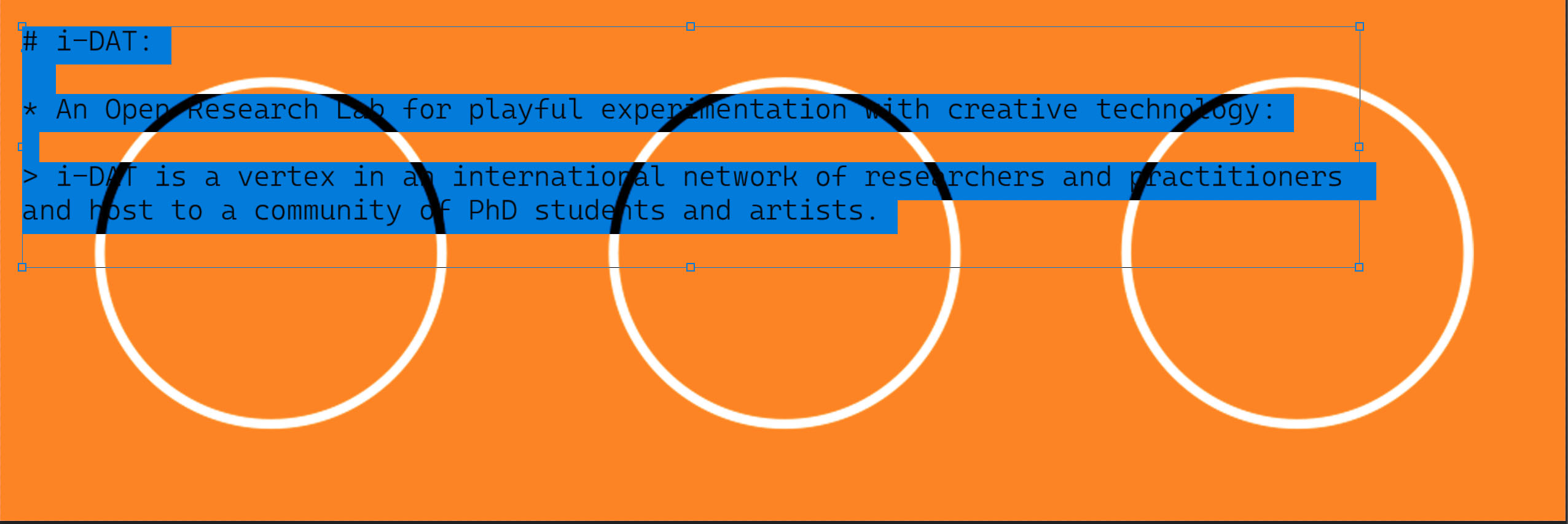
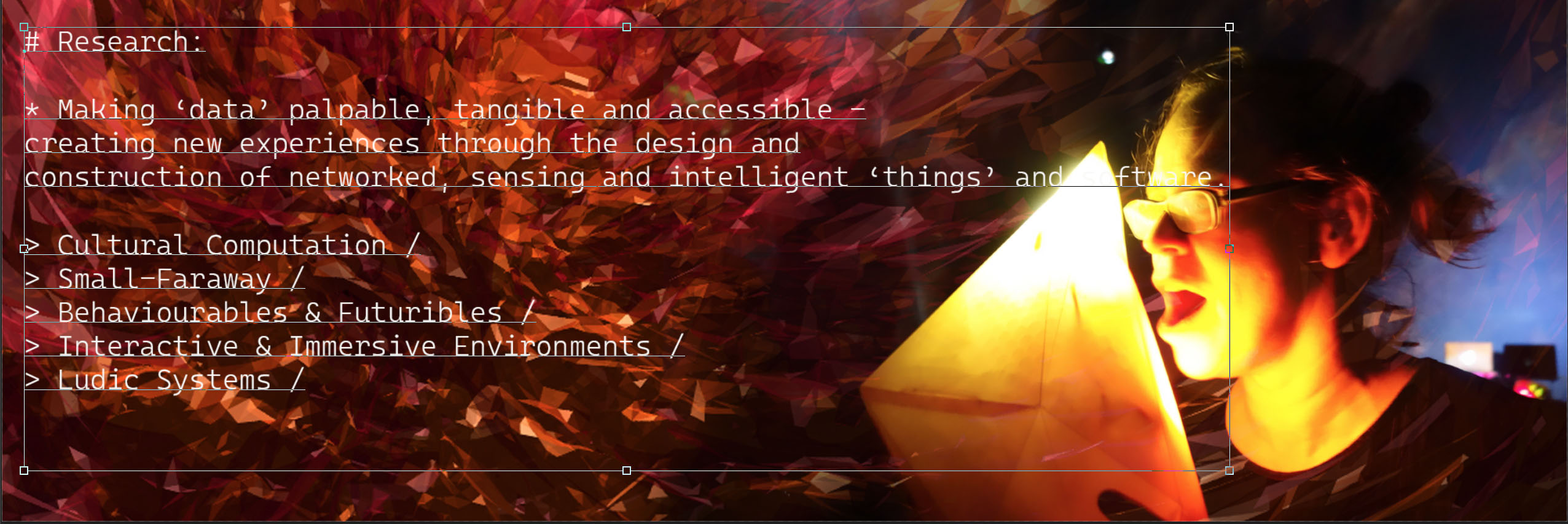
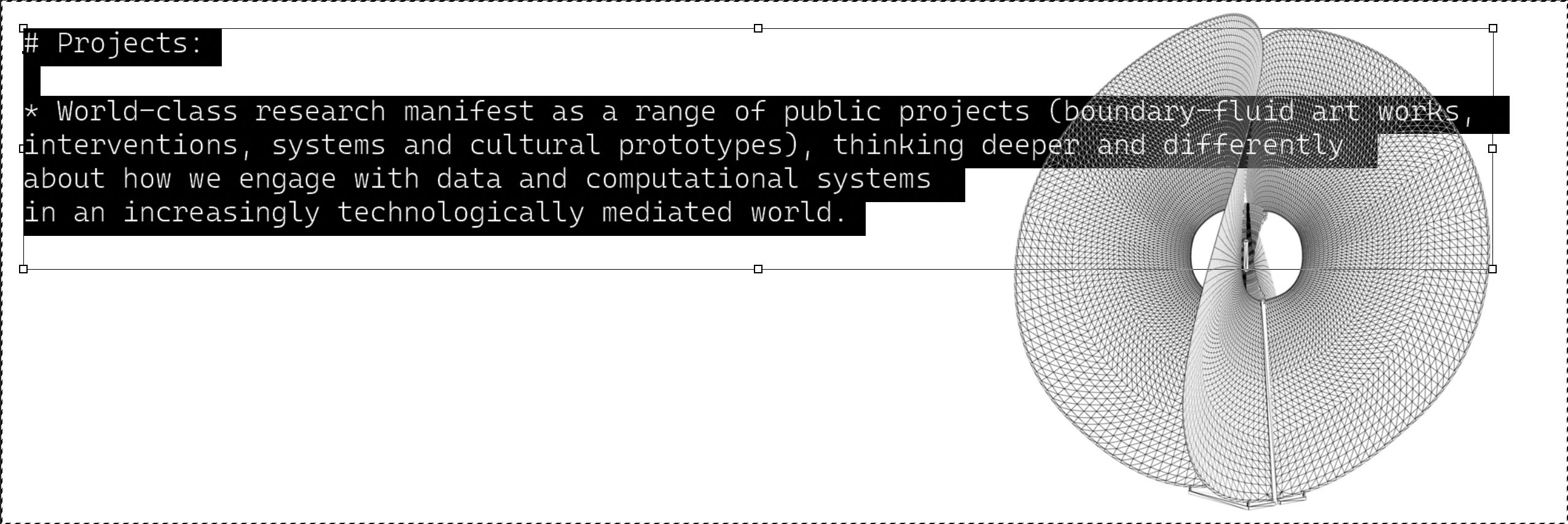
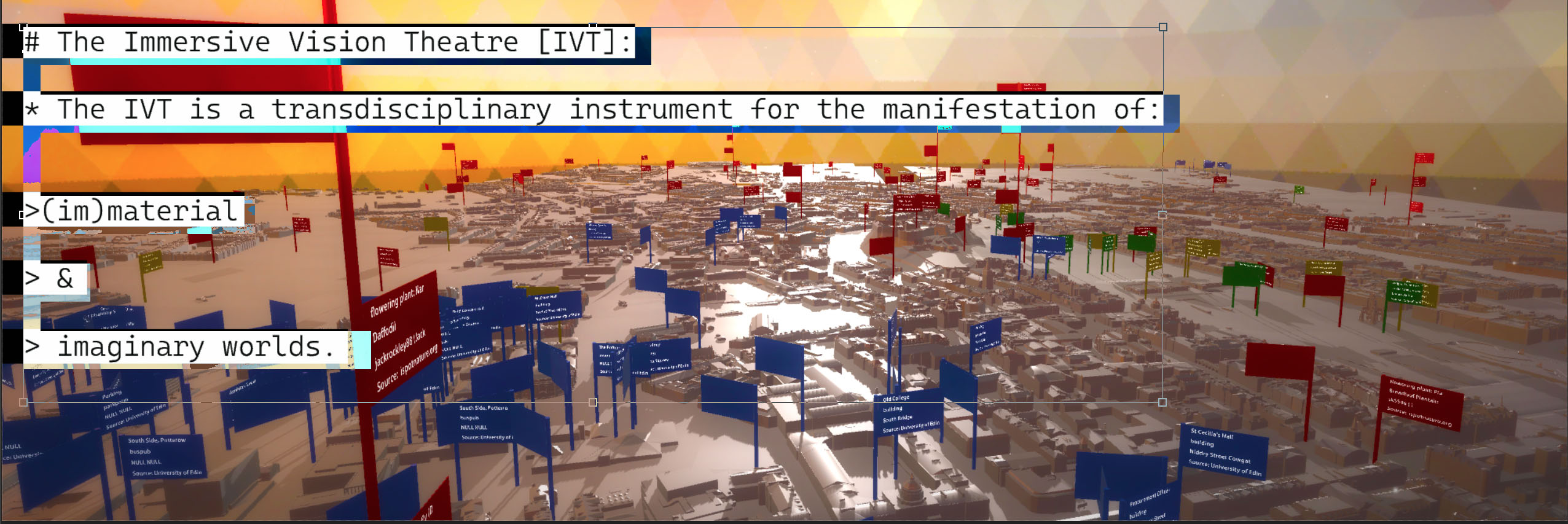
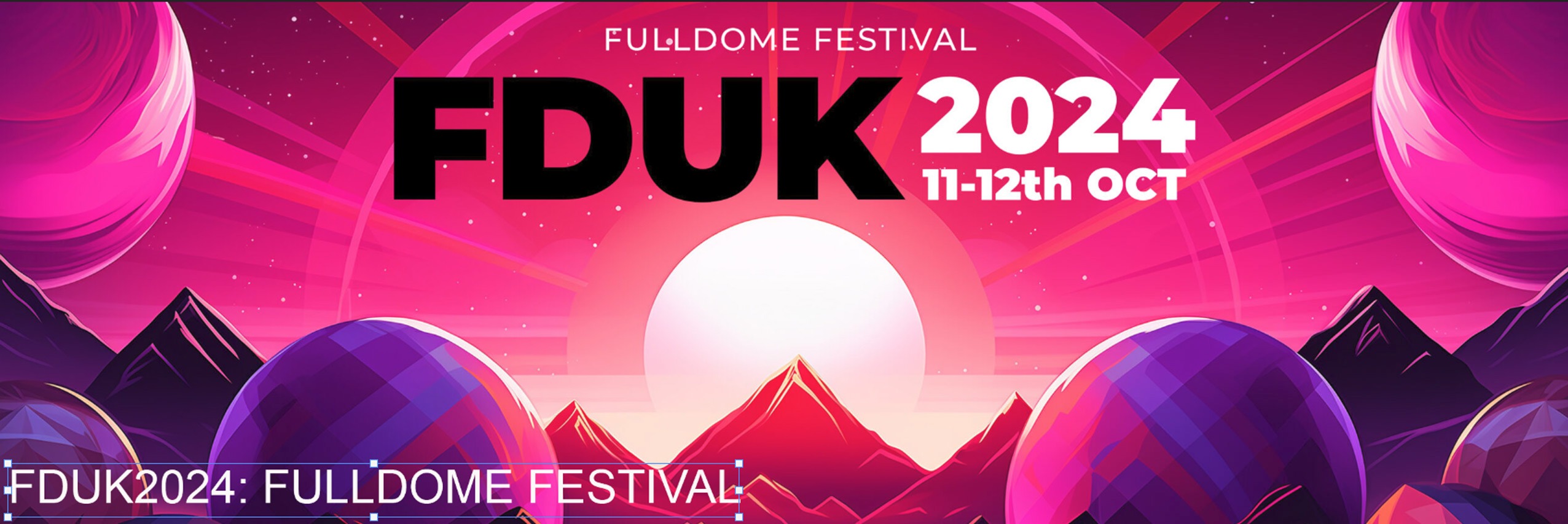
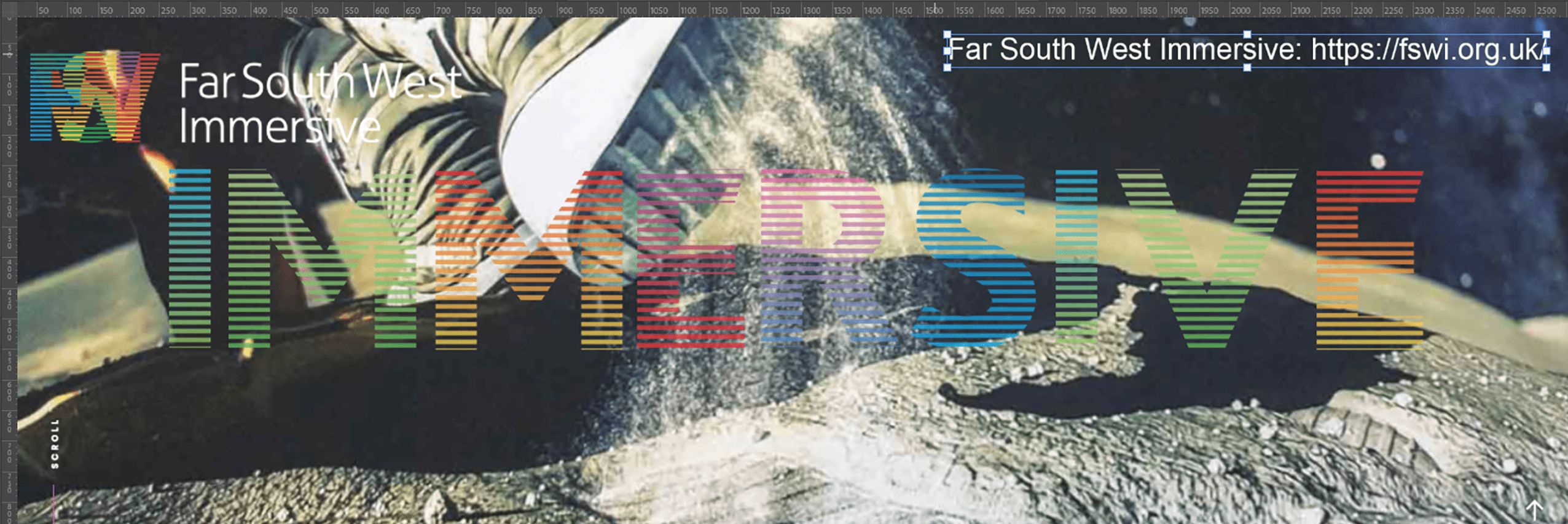
You must be logged in to post a comment.